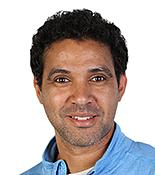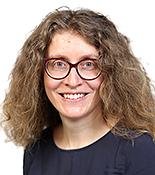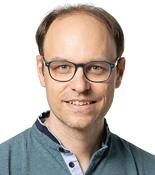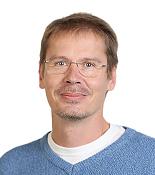
Aissam Ikmi
Group Leader
EditEMBL Lautenschlaeger Summer School 2022
Please note that proof of COVID-19 vaccination or recovery will be required to participate in the Summer School
After a two-year-hiatus due to the Covid-19 Pandemic, the EMBL Lautenschläger Summer School will be taking place again this summer.
As in the previous edition, the 2022 Summer School will focus on Visualising Life. The programme will introduce students with non-biology background to the dynamic interdisciplinary world of current biology research.
Modern life science has benefitted tremendously from new technologies and concepts in physics, engineering and mathematics, while computer science has changed the way we can analyze and exploit data for new insights.
Are you eager to engage in these ideas and help shape the future of biology? Join us for an exciting 2-week course at one of the leading biology research institutions in Europe.
The program’s aim is to provide insightful and hands-on experience in current biology methods, such as building a high-speed microscope to image developing organisms, and using machine learning to extract insightful data from the resulting complex images. EMBL group leaders and PhD students will lead theoretical lectures, complemented by experimental practicals and stimulating discussion rounds. In addition, the program offers a myriad of social activities that foster a collaborative spirit, which is a hallmark of research at EMBL.
Our programme targets advanced Bachelor and Master students from Physics, Chemistry, Engineering, Mathematics and Computer Science searching for a graduate-level program (e.g. Master or PhD). Students should have a strong interest to work in a highly interdisciplinary environment and must be fluent in English.
Previous knowledge of biology is beneficial, but not required.
With profound thanks to the Manfred Lautenschläger-Stiftung

Group Leader
Edit
Group Leader/ Acting Deputy of the Head of CBB.
Edit
Group Leader
Edit
Team Leader
EditDeadline for applications: 30 April 2022
The summer school is limited to 20 participants.
For selection purposes, you are required to submit a motivation letter and a CV. In order to ensure a fair and equal selection process, please refrain from adding a photo to your CV. Applications without a CV or motivation letter will not be considered.
You will be able to edit your motivation letter until the deadline: 30 April 2022.
Travel grants and fee waivers are available for the Summer School participants.
The travel grant will cover the cost of travel up to a maximum (economy tickets only).
The fee waiver will cover the cost of the registration fee.
You can apply for financial support when submitting your motivation letter.
Registration fee: 200 EUR
The registration fee includes:
Payment of the registration fee will be possible only once your application has been accepted. Selection results will be notified by beginning of May.
The 2022 programme will be very similar to the 2019 edition.
| Time | Monday 4 July | Tuesday 5 July | Wednesday 6 July | Thursday 7 July | Friday 8 July |
| 9:00 | Welcome by organisers | ||||
| 9:30-10:30 | Keynote Lecture: Biology across scales Vikas Trivedi | Probes & sensors Alex Cook | Expansion microscopy in cell biology Felix Mikus | Keynote lecture : Virgine Uhlmann | Lab day – all day programme |
| 10:30-11:00 | Keynote Lecture: Imaging life – How modern microscopy is revolutionizing biology Robert Prevedel | Superresolution microscopy Aline Tschanz | The basics of development Vladyslav Bondarenko | Keynote Lecture: Cell mechanics Nicoletta Petridou | |
| Break | |||||
| 11:30-12:30 | Basic concepts of microscopy Amr Tamimi | Beyond light microscopy Nikita Kaydanov | Visualizing DNA in cells and embryos Minglu Wang | From transcriptional nuclear environments to embryo development Albert Tsai | |
| 12:30-13:30 | Lunch break | ||||
| 13:30-18:00 | Practical: Microscopy building | Practical: Microscopy building | Practical: Imaging biology | Practical: Imaging biology | |
| 18:00 | Dinner | Dinner @ISG Hotel | Dinner | Food for thought with Manfred Lautenschläger | Lab Day dinner and party |
| Time | Monday 11 July | Tuesday 12 July | Wednesday 13 July | Thursday 14 July | Friday 15 July |
| 9:00-10:00 | Keynote Lecture: Imaging biology Christian Tischer | Optogenetics in biology Eva Hasel | Keynote lecture: bioimaging Timo Zimmermann | Correlative Light and Electron Microscopy Karel Moecer | Euro-BioImaging and Europe’s Research Infrastructure |
| 10:00-11:00 | The basics of image analysis: pixels, filters, morphology Sanjana Singh | Intro to machine learning Qin Yu | Keynote lecture: EM imaging Svetlana Dodonova | Machine learning for the analysis of ET data Dorothy Cheng | Students presentations |
| Break | |||||
| 11:30-12:30 | Feedback Microscopy Manuel Gunkel | Deep Learning Anna Kreshuk | SPIM Rory Power | Learning to describe cells Valentyna Zinchenko | |
| 12:30-13:30 | Lunch break | ||||
| 13:30-18:00 | Practical: Image analysis | Focus Practicals | Focus Practicals | Wrap-up and feedback session | |
| 18:00 | Dinner | Dinner | Dinner | Dinner | Farewell dinner |
This module will introduce you to basic concepts in microscopy, and teach you how to assemble your own microscope. The lectures will focus on physical principles, as well as describe the application of various microscopy methods for current research in biology. In the practical, you will build your own wide-field fluorescence microscope, evaluate it’s optical performance and test it on various biological samples.
This module will introduce the basic principles of developmental biology, with emphasise on imaging approaches that capture the cellular and molecular mechanisms by which a fertilized zygote transforms into a mature organism. Topics covered will include cell mechanics, cell-cell communication and tissue morphogenesis across diverse multicellular organisms. The lab practical will consist on live imaging the metamorphic process of a sea anemone that gradually transforms the spherical embryo into an elongated tubular body.
This module will give an introduction to how microscopy images can be processed to extract biological information. We will look into both classical filters and machine learning-based methods and try them all out on the Nematostella samples imaged in the previous module.
“The summer school provided me with invaluable insight of how my background in computer science can be useful in an interdisciplinary research setting. I loved the hands-on approach; building a high speed imaging microscope, and tried some machine learning. Combined with talks held by PhD students and group leaders we always had an opportunity to ask questions; from how life is under the microscope or at EMBL. The international participants where also a blast to get to know and make you feel less intimidated by such hard working but friendly scientists. By going to the summer school I have broadened my horizons and feel excited to see where my studies can take me.”
Christopher Vibe, Norway
“I loved the enthusiasm of the speakers and the social events in the evening in particular, they gave us a chance to unwind after a long day. I think it has widened my eyes more to studying for my PhD in another country which I hadn’t really considered before the school and studying a PhD in microbiology which I didn’t think was possible before as my degree is in Mechatronic Engineering.”
Andrew Wilson, Ireland
“I had never thought of coming to a Molecular Biology Lab and realizing I can actually work here. My Physics isn’t really useless in a Biology lab. I loved the freedom EMBL gives to the students. The hands-on practicals were the best. One is allowed to have new ideas and is given the resources to work on them. I would definitely want to pursue my Ph.D. in EMBL after this.”
Jyoti Sain, India
“What I liked best about the summer school was that I felt like I was a part of this scientific comunity. Everyone was extremely friendly and they were open to any kind of question. The summer school showed me many different research paths that I didn’t know I could take. This was the first time I took part in a course outside my university and it was the best experience I had so far.”
Georgia-Maria Kefala, Greece
EMBL Heidelberg
Meyerhofstraße 1
69117 Heidelberg
Germany
Tel: +49 6221 387-8612
Fax: +49 6221 387-8400
Email: summerschool@embl.de
Date: 4 - 15 Jul 2022
Location: EMBL Heidelberg
Time: 09:00
Venue: EMBL Imaging Centre
Deadline(s):
Closed
Contact: Carolina Garcia Sabate